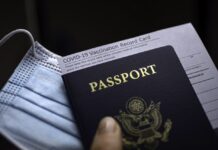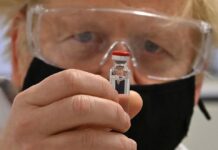As the mammoth task of COVID-19 vaccination is being carried out, people in India and the rest of the world are hoping life will gradually limp back to normal. The passport to a world as it was before the virus struck is a passport—a ‘vaccine passport’.
Except, it’s not really a passport. Countries around the world, the World Health Organisation, private organisations, and technology companies have been mulling over the idea of a certification system that allows people with proper documentation of vaccination access to travel, leisure activities, gyms, hotels, and workplaces.
While a ‘passport’ could be a step towards normalcy, both physically and psychologically, there are of course challenges of a standardised ‘passport’ system, authenticity, privacy, and credibility around an individual’s immunity to the virus.
What is a vaccine passport?
A vaccine passport isn’t a physical passport but a digital document that serves as a valid certification of an individual’s vaccination against COVID-19. Like a passport, this document will allow people physical access to places, as it would act as a proof of the person being ‘safe’.
The idea is to come up with verifiable, secure, and credible digitised records of inoculation that will be accepted across countries as well as by entities within India, and enable one to bypass mandatory quarantine requirements.
Who is using vaccine passports?
Israel became the first country to introduce a certification system. The country’s system is designed to allow an individual with the ‘passport’ access to facilities and services such as hotels, restaurants, gyms, and workplaces.













